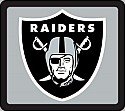
Elizabeth Brown Pryor calls Robert E. Lee's personal saga as one of the "most riveting stories of American history" because of its scope which ranges from a family tale to an national epic. Author Bruce Catton called the Civil War "the greatest and most moving chapter" in history and Lee was at the center of it all. Other than Lincoln, I don't think that any other Civil War figure has received as much attention as General Lee.
Douglas Southall Freeman's 4-volume work remains the best biography of Lee but the work is littered with Lost Cause sentimentality. Other Lee biographies have sprung up over the years along with the best post-Freeman assessment of Lee by Emory Thomas's 1995 book.Ms. Pryor took a unique approach on her Lee biography by avoiding the standard stance on the subject. Instead each chapter starts off with a piece of primary source material written by Lee, a family member or a friend. A few times more than one letter or document is presented. After that the author uses these manuscripts as a basis for the subject of each chapter. After presenting the primary source, Pryor writes an account on how that source fits in Lee's life and she discusses each in detail by backing up her statements with some of Lee's other writings.I have to say that it is one of the most interesting books that I have ever read because it includes primary source material that I have never read before. Moreover, the author presents a man who is more human than Freeman's "marble model" of perfection.
The book digs deep into Lee's character including ones that are virtually unknown. Lee's pioneering role in engineering science, his tense relationships with other men and his deep affection for women are explored in depth. Pryor does a brilliant job by explaining Lee's actions within the societal developments of the time. She accurately asserts that this made Lee one of the leading actors in the formation of the nation even though it cost him his own private happiness.If your looking for Lee worship in this book than think again. It is easy for any reader to see that Pryor respects Lee but she doesn't worship him. She is willing to openly explain Lee's faults and this sheds light on parts of Lee's character that have been rarely explored before. Did Lee cheat on his wife? Why was the love for his children so intense? Why did he choose to leave the army that he served for thirty-four years? Was Lee ambitious? Did Lee face depression or anxiety in his lifetime? Pryor handpicked Lee's own personal writings in which he portrays himself as a confused, passive, and vulnerable person who never had a premonition of fame or saw himself as a tragic figure. Her feelings on Lee are balanced, well-researched and some Lee cultists might find them offending.
If you agree with her assessments or not there is one fact that is perfectly clear. Robert E. Lee wasn't the "marble model" that history has painted him as. Lee was a human being who had strengths and weaknesses just like anybody else. Lee could lie, Lee could feel intense anger, Lee could be racist and all the other things that people detest. At the same time he could be a wonderful father, a brilliant commander and a good friend.History will argue that Lee was against slavery just like Jefferson or Washington. Pryor includes Lee's writings that speak of a man who saw whites as superiors to blacks and accusations of Lee beating his slaves is explored. Lee was also a womanizer who had more female friends than male and he hinted at having intimate relationships with many of them. Lee loved to flirt and he was very playful in his correspondence. Moreover, Lee was a bit of a dandy and this allowed ladies to notice him even more. He even appears to be a bit overconfident in his beauty as he sought to keep up on the popular clothing fashions of the time. Pryor's Lee jumps out of the page at you and is unlike any other Lee that you will meet in your Civil War readings.If you read her book you will no longer think of Lee as the stone icon. Instead you will know more about a complex, sometimes contradictory and even more fascinating figure. Lee made many tough decisions throughout his life buy leaving the Union army might have been his hardest choice. Through this decision Pryor explains that Lee's situation teaches more about him and brings to light something that we can learn about ourselves. "His decision" she writes "tells us something more: that following the heart's truth may lead to censure, or agonizing defeat--and yet be honored in itself." Doesn't that quote describe Robert E. Lee perfectly?
Ms. Pryor's fine book has brought to life a man who "did the best he could", at all things for which he took responsibility. His striving for excellence became both a blessing and a curse as he and his soldiers fought against terrible odds. I think it does and you will agree when you purchase or borrow Reading the Man by Elizabeth Brown Pryor.





No comments:
Post a Comment